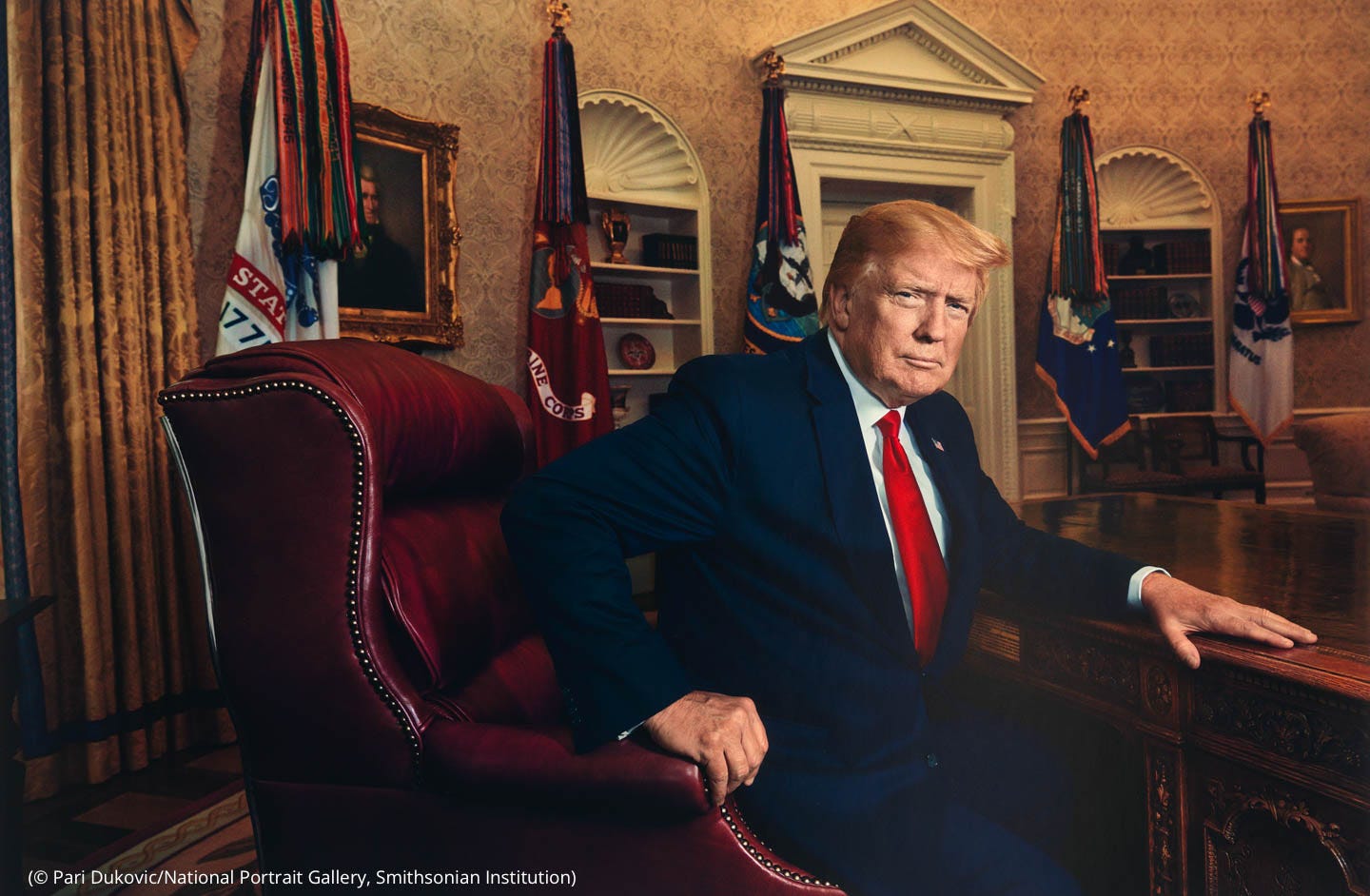End Knowledge-Acquisition Discrimination
How The Trump Administration Could Crush Credentialism
In the rapidly shifting landscape of work and education, the United States stands at a critical juncture.
As artificial intelligence continues to revolutionize nearly every sector of the economy, it has exposed a fundamental flaw in our labor market: the outdated and exclusionary practice of knowledge-acquisition discrimination (more colloquially known as Credentialism)—that is, discriminating against individuals who have acquired valuable, marketable skills without the formal credential of a degree.
The Trump administration has a golden opportunity to upend this discriminatory practice by pushing for federal legislation that prioritizes skills-based hiring over outdated credentialism. This shift would not only help address America's growing labor shortage in key technical fields but also inject new vitality into the economy by empowering self-taught individuals, bootcamp graduates, and those who have taken unconventional paths to acquire valuable skills.
The Flattening Effect of AI on Education
AI is absolutely flattening the educational playing field. In the past, a college degree or professional certification served as a proxy for competence and capability. Employers leaned on these signals because they provided a convenient (albeit flawed) way to assess a candidate’s readiness for a job. But with the rise of AI-powered tools, that illusion of rigor is rapidly crumbling.
AI models like ChatGPT can now generate high-quality essays, write code, and conduct complex data analysis at a level that rivals or surpasses most college graduates. This has profoundly flattened educational outcomes. Take-home assignments, essays, and group projects—once clear markers of ability and diligence are now trivially automated. A student with a 95 IQ and one with a 135 IQ can now produce work of indistinguishable quality with minimal effort. The result is that degrees and certifications, once proxies for competence, have become little more than signals of access; access to AI, access to shortcuts, and access to credentialing.
Yet paradoxically, outside of academia, AI is amplifying asymmetry. In the real world, those who can master AI as a force multiplier—automating workflows, accelerating business processes, or creatively solving problems will massively outpace their peers. The very tool that flattened educational performance will create unprecedented gaps in practical ability. AI isn’t leveling the playing field but, instead merely hides the divide until graduation. So what’s the point in having this inefficient filter in the first place? If AI can produce the work, and real-world success increasingly depends on AI proficiency, why pretend that a degree still measures capability?
In short, higher education is rapidly becoming a prestige laundering operation, granting identical credentials to students regardless of skill; while in the workforce, competence will sharply diverge based on who can best wield the machine.
The real test of competency is no longer whether someone can obtain a credential but whether they can demonstrate their ability in real-world conditions. The ability to solve problems, build solutions, and add value in the marketplace has now become detached from the traditional mechanisms of academic certification. Clinging to credentialism in the face of this transformation isn’t simpily inefficient; it’s unjust.
College Is A Paywall, Not A Meritocracy
Consider the absurdity of the status quo: A talented software engineer who taught himself Python, SQL, and machine learning through YouTube tutorials, personal projects, and open-source contributions is routinely overlooked by major companies because he lacks a four-year degree. Meanwhile, a freshly-minted graduate with middling skills but a $100,000 piece of paper is given priority access to those same opportunities.
This is knowledge-acquisition discrimination in its purest form. It punishes people not for what they know, but for how they acquired it. Worse yet, it actively discourages innovation, self-reliance, and alternative educational paths—all while perpetuating a system that indebts millions of young Americans to acquire knowledge they could have gained for free or at minimal cost.
And the financial burden of this credentialism is staggering. The average student graduates with over $37,000 in student loan debt. Institutions continue to inflate tuition, often without any increase in educational value. The net result is a parasitic credentialing industry that profits off the gatekeeping of economic opportunity—while the labor market continues to cry out for talent. Which in turn, encourages market leaders to push for mass immigration to solve this fake dearth of talent.
The Disparate Impact Irony
And how did we get here in the first place? Ironically, it was disparate impact theory, a concept championed in the 1970s to root out racial discrimination in employment that helped midwife the credentialist monster we have today. The logic went something like this: if a hiring process disproportionately impacted certain minority groups, it must be discriminatory.
So rather than risk lawsuits, companies defaulted to requiring degrees and certifications; an objective, seemingly neutral hiring standard. But this credentialism ultimately backfired on the very groups it was intended to help. It priced out millions of low-income Americans, disproportionately impacting our melanated friends, and cemented an upper-middle-class professional caste protected by costly and largely meaningless degrees.
It’s like trying to eliminate economic disparities by forcing everyone to shop exclusively at Whole Foods. Instead of creating opportunity, it just creates a rigid, self-perpetuating caste of “acceptable” hires while everyone else languishes in economic purgatorry.
What about the Trump administration? They’ve already had a field day dismantling DEI programs and attacking the legal framework that undergirds the stupidity of disparate impact claims. The administration should finish the fight by demolishing the last vestige of this nonsense: the credentialist regime itself. After all, when the Left handed us a cultural Trojan horse of "equity," it turned out to be little more than a class barrier in disguise. Time to burn that horse to the ground.
Credentialism Is Feminine, Dynamism Is Masculine
But there is an even deeper rot at the heart of credentialism: it is fundamentally feminine and anti-vitalist. Credentialism rewards conformity, obedience, and box-checking. It selects for people who can endure four years of mindless hoop-jumping and regurgitate textbook knowledge—not for those with raw talent, drive, or creativity.
This is not coincidental. Credentialism embodies the most sterile, process-obsessed tendencies of the feminine: risk-aversion, consensus-seeking, and preference for social status over raw competence. In contrast, the masculine force in the economy thrives on audacity, self-directed learning, and the desire to build. Where credentialism asks, "Did you follow the rules?" dynamism demands, "Can you actually do the job?"
But the market doesn’t need more compliant rule-followers. It needs builders, hackers, makers, and freethinkers. It needs people who can demonstrate their capabilities, not signal their status. This is the spirit of economic dynamism; the masculine force of ambition and risk-taking.
The Tortuga Society has quite a few highly intelligent and driven young men who have eschewed woke academic institutions and their DEI acceptance procedures. These guys are learning in-demand skills at breakneck pace and would outperform their DEI credentialed rivals easily. However, under the current paradigm, their lack of a formal degree puts them at a huge disadvantage. That’s retarded.
Not only is the inefficient and causing a debt crisis among young Americans—it’s a civilizational threat. If we are to compete with the rising power of China and their BRICs allies—we need to change.
By dismantling knowledge-acquisition discrimination, the Trump administration would unleash a wave of entrepreneurial energy and creativity that has been stifled by the credentialist gatekeepers for decades. These young Tortugans would reign supreme in such a market, unleashing their ability and productivity on the U.S. economy. This would signal a major cultural shift—one where raw ability finally reigns supreme over flashy ornaments.
The Legal Linchpin: Griggs v. Duke Power
If the Trump administration is serious about dismantling credentialism, they have a clear legal target: Griggs v. Duke Power (1971); the Supreme Court case that entrenched disparate impact theory into employment law. In that case, the Court ruled that employment practices that disproportionately harmed minority groups—even if unintentional—could be deemed discriminatory unless they were job-related and consistent with business necessity. This ruling enshrined the logic of credentialism into federal law.
Employers, fearing lawsuits, rapidly adopted degree requirements as a “neutral” hiring standard—even for roles where formal education was entirely unnecessary. The result was the slow strangulation of working-class mobility and the rise of a professional caste defined not by skill, but by access to academic institutions.
But the Trump administration has already signaled a willingness to challenge the legal underpinnings of disparate impact theory. Conservative legal scholars have increasingly targeted Griggs as the source of much economic stagnation. If Trump were to successfully challenge Griggs, either by appointing sympathetic justices or pushing for a legislative override the entire legal framework propping up credentialism would collapse
What Trump can do
The solution is clear: abolish knowledge-acquisition discrimination. The Trump administration has a wide array of tools it could deploy to make this a reality.






